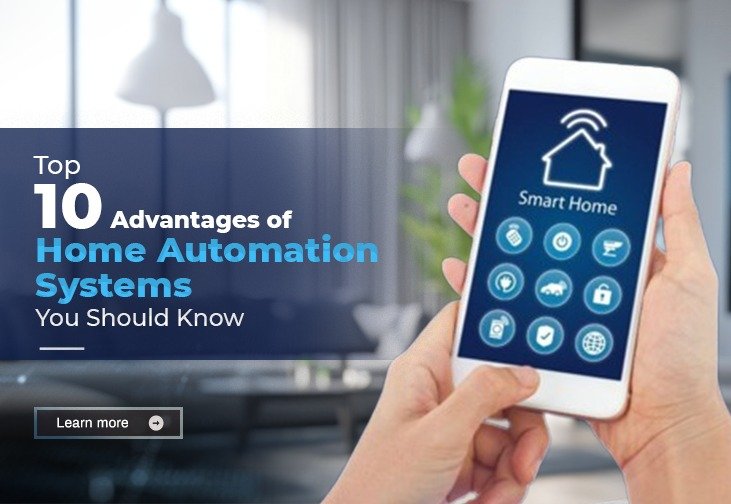In recent years, home automation systems have moved from being a futuristic luxury to a practical addition in many modern households. The concept revolves around using smart devices and technologies to control various functions of a home, such as lighting, temperature, security, and appliances—all from a centralized interface or smartphone. This integration not only simplifies everyday tasks but also enhances efficiency and comfort. Homeowners can program devices to perform specific actions at certain times, monitor activities remotely, and receive instant alerts about potential issues. These systems often combine the power of sensors, internet connectivity, and artificial intelligence to create a responsive living environment. From saving energy to ensuring better safety, the advantages of home automation system technologies are vast and varied. As technology continues to evolve, understanding the benefits of these systems becomes essential for anyone looking to optimize their home for both convenience and functionality.
1. Increased Energy Efficiency
One of the most noticeable advantages of home automation system setups is improved energy efficiency. Smart thermostats, lighting controls, and energy-monitoring devices allow homeowners to track and manage energy usage effectively. For instance, lights can be set to turn off automatically when no one is in the room, or the thermostat can adjust the temperature based on occupancy and time of day. These small, automated actions can lead to significant reductions in electricity bills over time. The system’s ability to learn and adapt to user behaviour further improves its efficiency.
2. Enhanced Home Security
Security is a major reason why many people invest in automation. Home automation systems can integrate smart locks, motion detectors, surveillance cameras, and alarm systems into one network. Users can monitor security footage remotely and receive alerts in real-time if any unusual activity is detected. Doors can be locked or unlocked using mobile devices, and lights can be programmed to mimic occupancy even when the house is empty, deterring potential intruders. These systems add a powerful layer of protection for homeowners and their families.
3. Remote Access and Control
The ability to control your home from anywhere is another strong benefit. Whether you’re at work, on vacation, or just in another room, you can manage your home environment through your smartphone or tablet. Forgot to turn off the lights before leaving? Want to adjust the air conditioning before you arrive home? With home automation, all of this can be done with just a few taps. This convenience extends to nearly every part of your home, from entertainment systems to kitchen appliances.
4. Improved Appliance Functionality
Home automation systems are designed to make your devices smarter. For example, smart refrigerators can track expiration dates, suggest recipes based on the ingredients available, or even order groceries. Similarly, a smart oven can be preheated remotely or notify you when your food is ready. This level of functionality not only saves time but also enhances the overall experience of using home appliances. Over time, these features become part of a smoother and more responsive household routine.
5. Better Comfort and Customization
Comfort is a key factor in any home, and automation systems offer personalized control over your environment. You can set specific lighting moods for different times of day, program music to play when you enter a room, or adjust blinds automatically based on sunlight. These custom settings contribute to a more comfortable and enjoyable living space. For families, it means different members can have their own preferences saved and activated easily.
6. Time-Saving Convenience
Automation helps save time in numerous ways. Routine tasks like watering the garden, opening and closing curtains, or switching on morning alarms can be automated. This allows homeowners to focus on more important activities without worrying about the smaller day-to-day chores. The system can be set up to perform tasks at regular intervals or triggered by specific conditions, which means less manual work and more efficiency.
7. Aging-in-Place and Accessibility Support
Another important advantage of home automation system setups is their support for the elderly and individuals with disabilities. Features like voice-controlled lighting, automatic doors, emergency alert systems, and fall detection sensors can make independent living safer and more manageable. These technologies offer peace of mind to families and caregivers by ensuring that essential services can be accessed quickly and easily when needed.
8. Real-Time Monitoring and Insights
With home automation, you get access to real-time data and usage patterns. Whether it’s knowing how much energy your household is consuming, when someone enters your home, or how often a device is used, these insights help you make informed decisions. Monitoring tools can be especially helpful for tracking the habits of young children or elderly family members, enhancing both safety and awareness.
9. Integration with Smart Ecosystems
Today’s home automation systems are not isolated. They can be integrated with larger smart ecosystems like Amazon Alexa, Google Home, or Apple HomeKit. This means devices can work together smoothly, and users can control multiple systems through a single voice command or mobile app. For instance, saying “Goodnight” might lock all doors, switch off lights, and lower the thermostat simultaneously. Such interconnectedness adds to the overall ease of use.
10. Increased Property Value
Investing in home automation technology can also have a positive impact on your home’s market value. Many potential buyers find smart homes more attractive due to the built-in conveniences and long-term savings. Features like automated lighting, smart thermostats, and integrated security systems are no longer just bonus features—they’re often expected. Homes equipped with these technologies may stand out in competitive real estate markets.
Final Thoughts
Home automation is transforming the way we interact with our living spaces. From offering safety and energy savings to delivering unmatched convenience and accessibility, the advantages of home automation system installations are becoming increasingly difficult to ignore. As more households adopt these smart solutions, the systems themselves continue to evolve—becoming more user-friendly, interconnected, and affordable. Whether you’re looking to simplify your daily routines or future-proof your home, understanding the key advantages of home automation system technology is the first step toward making smarter living choices. With time, these innovations will likely become standard in homes everywhere, reshaping domestic life for generations to come.




